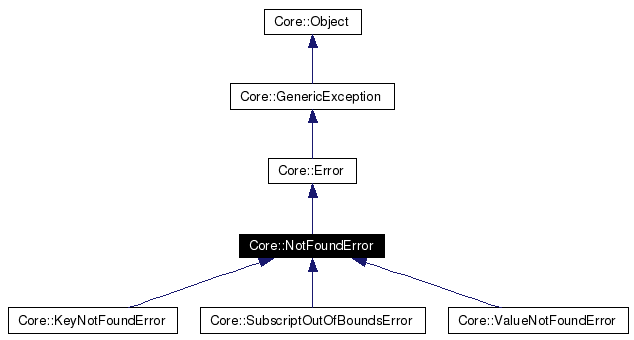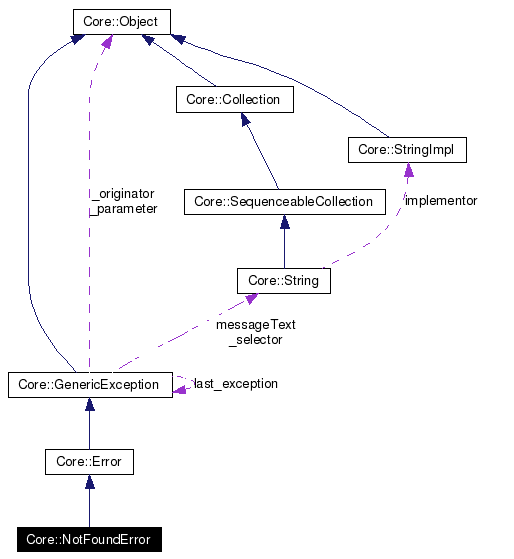
#include <NotFoundError.h>
Inheritance diagram for Core::NotFoundError:


Public Member Functions | |
| NotFoundError (const char *selector=NULL, Object *param=nil) | |
| virtual String * | className (void) const |
| Answer receiver class name. | |
| virtual String * | notifierString () |
Protected Member Functions | |
| virtual void | privRaise (void) |
| This method really throws the receiver as an exception. | |
|
||||||||||||
|
Definition at line 35 of file NotFoundError.h.
|
|
|
Answer receiver class name. Because there isn't any standard way to obtain class name this method comes to place. Every class should rewrite this method but many didn't (yet). Reimplemented from Core::Error. Reimplemented in Core::KeyNotFoundError, Core::SubscriptOutOfBoundsError, and Core::ValueNotFoundError. Definition at line 39 of file NotFoundError.h. 00040 { return new String("NotFoundError"); }
|
|
|
Reimplemented from Core::Error. Reimplemented in Core::KeyNotFoundError, Core::SubscriptOutOfBoundsError, and Core::ValueNotFoundError. Definition at line 43 of file NotFoundError.h. 00044 { return new String("Element not found"); }
|
|
|
This method really throws the receiver as an exception. Every subclass MUST reimplement this method, even if it's parent does. This is because of poor object type handling in C++. :-( Reimplemented from Core::Error. Reimplemented in Core::KeyNotFoundError, Core::SubscriptOutOfBoundsError, and Core::ValueNotFoundError. Definition at line 48 of file NotFoundError.h. 00049 { throw this; }
|
 1.4.2
1.4.2